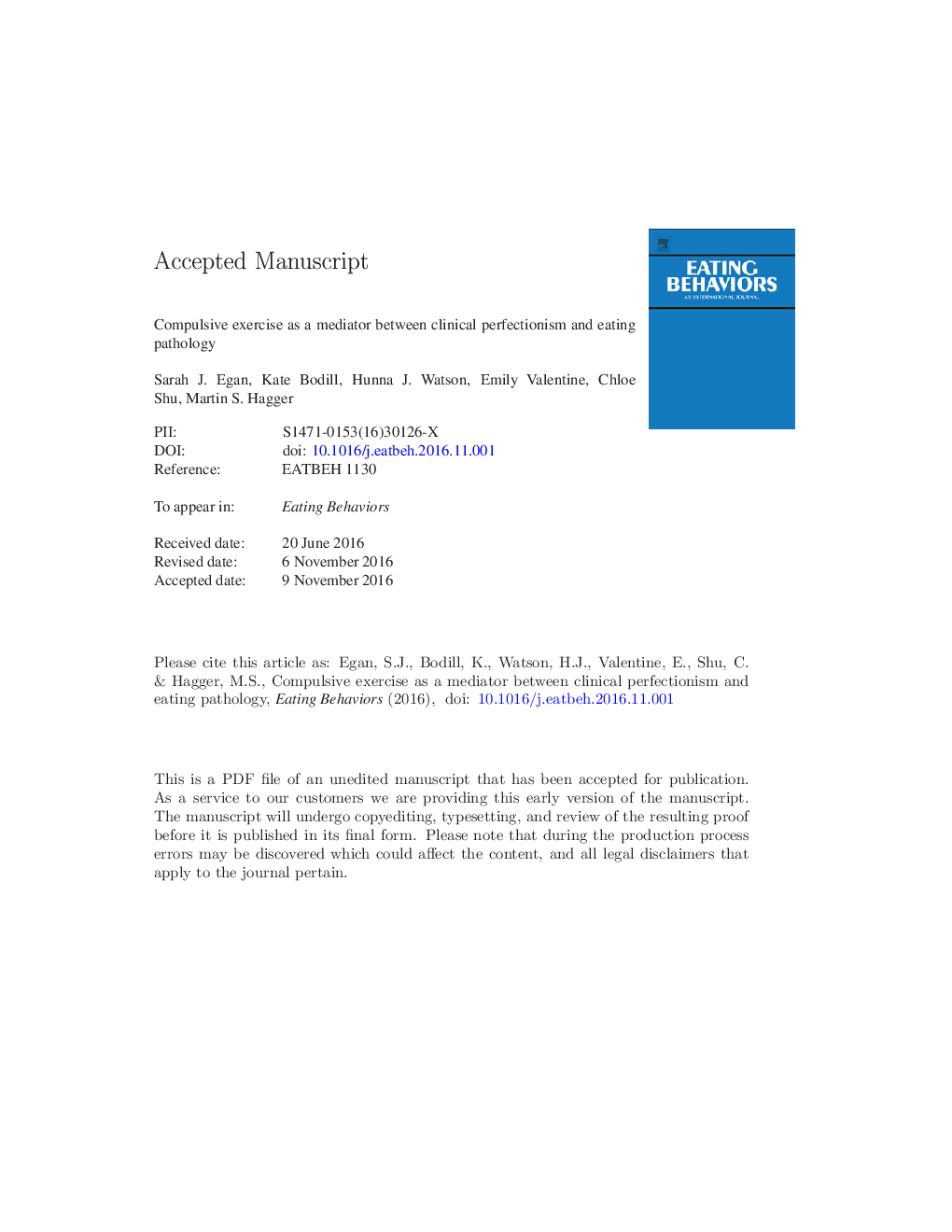ترجمه فارسی عنوان مقاله
ورزش اجباری به عنوان یک واسطه بین کمال گرا بودن بالینی و آسیب شناسی غذا
عنوان انگلیسی
Compulsive exercise as a mediator between clinical perfectionism and eating pathology
| کد مقاله | سال انتشار | تعداد صفحات مقاله انگلیسی |
|---|---|---|
| 120709 | 2017 | 31 صفحه PDF |
منبع

Publisher : Elsevier - Science Direct (الزویر - ساینس دایرکت)
Journal : Eating Behaviors, Volume 24, January 2017, Pages 11-16
ترجمه کلمات کلیدی
تمرین اجباری، اختلال خوردن واسطه کمال گرایی،
کلمات کلیدی انگلیسی
Compulsive exercise; Eating disorder; Mediation; Perfectionism;

